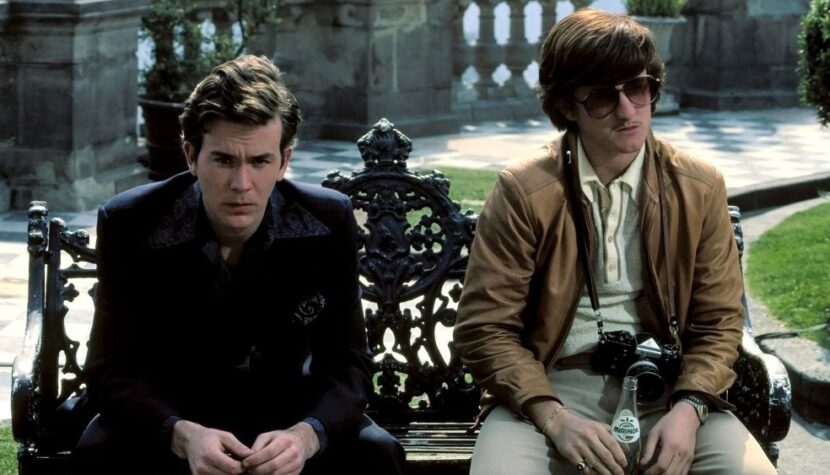The Falcon and the Snowman. This is not America

The unjustly forgotten and underrated film with excellent performances by Timothy Hutton and Sean Penn is one of the most intriguing spy movies of the last four decades.
California, the 1970s. Christopher, a young boy with a passion for falconry, abandons his studies at a seminary. Thanks to his father’s connections, a retired FBI agent, he lands a job at the non-governmental company RTX in the defense and security sector. His work in the “Black Vault,” as the company employees call its headquarters, involves controlling the flow of data related to secret operations of the U.S. government worldwide. Due to a series of inaccurately transmitted messages, Chris comes into possession of information about the CIA’s involvement in overthrowing the Australian prime minister. Disillusioned by the actions of the U.S. government, he decides to leak documents to the Soviet Union. To help him, he recruits his childhood friend Andrew, a small-time cocaine dealer addicted to drugs, who establishes contact with representatives of the Soviet embassy in Mexico. While Chris is motivated by idealism, the entire operation has a business character for his companion. What initially seemed like an exciting adventure turns into a dangerous game.

Screenwriter Steven Zaillian based his script on Robert Lindsey’s book, “The Falcon and the Snowman: A True Story of Friendship and Espionage,” describing the true story of Christopher Boyce and Andrew Daulton Lee – friends who sold classified documents of the U.S. government to KGB agents posing as ambassadors. After several years of espionage, Boyce (operational pseudonym “The Falcon”) and Lee (“The Snowman”) were exposed, captured, and sentenced to 40 years and life imprisonment, respectively. Boyce escaped from prison and committed a series of bank robberies, intending to escape to the USSR with the stolen money. However, he was recaptured and received an additional 28 years. Eventually, both men were conditionally released (Lee in 1998, Boyce four years later) and currently enjoy freedom. Neither of them returned to a life of crime (Lee even found employment as Sean Penn’s personal assistant), but at least one of them did not abandon old thinking patterns – Boyce openly expressed support for the Russian whistleblower Edward Snowden.
“The Falcon and the Snowman” is not burdened with politics, propaganda, or ideology. Initially, the instigator of the enterprise, Boyce, is portrayed as an idealist disillusioned with U.S. government politics. Over time, he realizes his own folly, intends to break off the spy operation, and pursue legal studies. However, he is so entangled in the affair that he doesn’t know how to extricate himself. He can’t even escape, so he passively awaits inevitable punishment. Lee also declares himself a patriot, but in reality, he is an opportunist obsessed with the promise of easy money. In both cases, internal motivations lead to betrayal. Director John Schlesinger depicted this process meticulously, almost coldly. He does not whitewash his characters, sympathize with them, or justify them – Boyce and Lee are not victims of the system but of their own naivety, greed, and misunderstood patriotism. In this spy thriller, there are no shootouts or chases; intelligence activities are portrayed as dull and routine, yet “The Falcon and the Snowman” captivates with an atmosphere of unease and entrapment, keeping the audience in suspense until the last minute.

This is because the creators knew well that the most interesting aspect is what happens on the emotional and psychological level. Thus, the extraordinary true story, instead of becoming another sensational spectacle in the style of childish James Bond stories, becomes an ambivalent narrative in the spirit of John le Carré’s books. Like the British writer, the authors of “The Falcon and the Snowman” used the spy movie convention to discuss moral ambiguity, ethical nuances, obligations to the homeland, heroism, and cowardice. This wouldn’t be possible without flawless direction, a precise script, and outstanding performances by Timothy Hutton and Sean Penn, especially the latter who makes a huge impression as Lee, an overexcited drug addict with a disgusting mustache. The dynamics of their relationship is one of the main axes of the film, and the viewer remembers the image of both men as subdued, shackled convicts. A moment later, David Bowie sings “This Is Not America” – a “hymn of a defeated life,” as one critic wrote.

